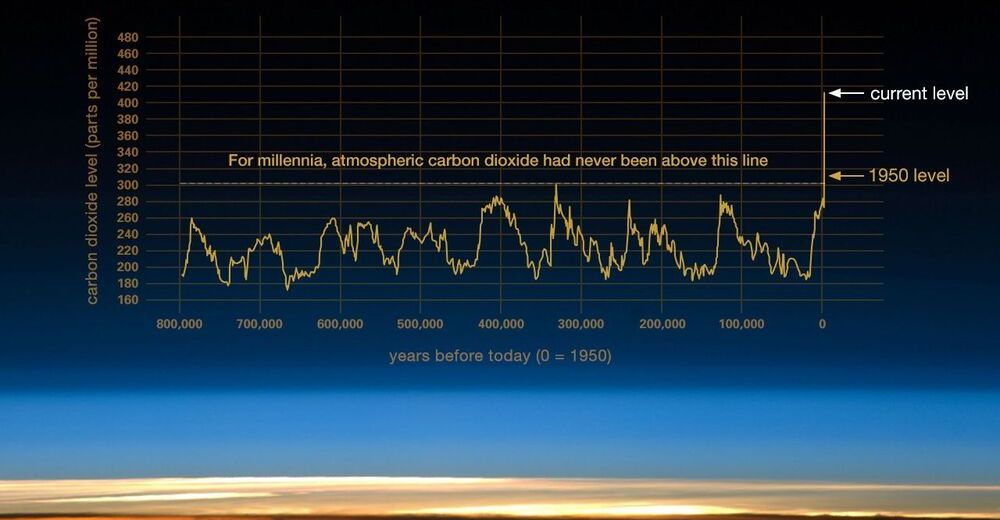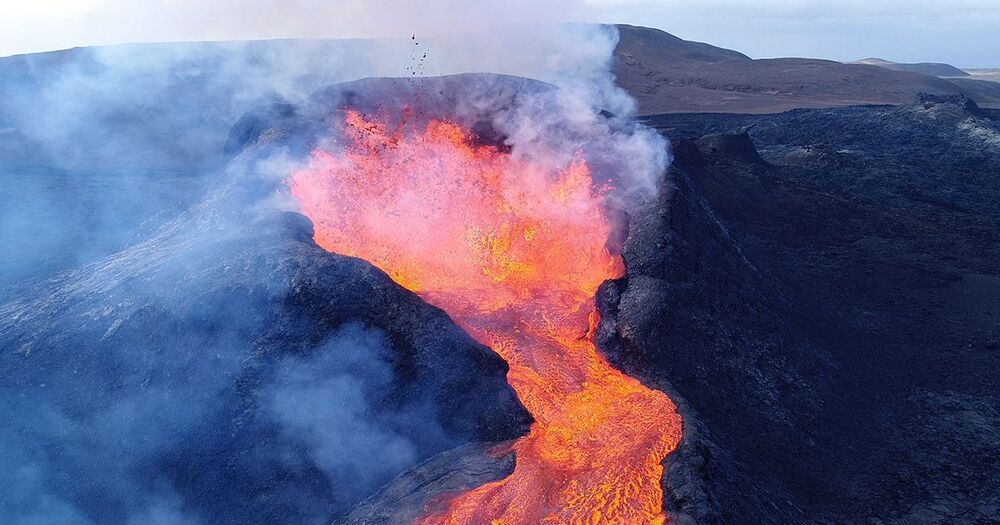Planting 1.2 trillion trees could undo 10 years of climate change damage!
#WorldEnvironmentDay #ClimateChange #Environment #WorldEnvironmentDay2021


As the number of qubits in early quantum computers increases, their creators are opening up access via the cloud. IBM has its IBM Q network, for instance, while Microsoft has integrated quantum devices into its Azure cloud-computing platform. By combining these platforms with quantum-inspired optimisation algorithms and variable quantum algorithms, researchers could start to see some early benefits of quantum computing in the fields of chemistry and biology within the next few years. In time, Google’s Sergio Boixo hopes that quantum computers will be able to tackle some of the existential crises facing our planet. “Climate change is an energy problem – energy is a physical, chemical process,” he says.
“Maybe if we build the tools that allow the simulations to be done, we can construct a new industrial revolution that will hopefully be a more efficient use of energy.” But eventually, the area where quantum computers might have the biggest impact is in quantum physics itself.
The Large Hadron Collider, the world’s largest particle accelerator, collects about 300 gigabytes of data a second as it smashes protons together to try and unlock the fundamental secrets of the universe. To analyse it requires huge amounts of computing power – right now it’s split across 170 data centres in 42 countries. Some scientists at CERN – the European Organisation for Nuclear Research – hope quantum computers could help speed up the analysis of data by enabling them to run more accurate simulations before conducting real-world tests. They’re starting to develop algorithms and models that will help them harness the power of quantum computers when the devices get good enough to help.
Concentrated solar power might just revolutionize the energy sector as we know it.
Subscribe here: http://freeth.ink/youtube-subscribe-concentratedsolarpower.
Concentrated solar power is produced using a large amount of mirrors which are angled to reflect the sunlight onto a large solar receiver. Aside from being clean energy, one of the most promising advantages of CSP is that it can generate transportable energy for use far beyond where it was harvested.
The idea of concentrated solar power isn’t new — the first commercial plant was developed in the 1960s. But a company called Heliogen has found a way to make the process of reflecting and storing sunlight much more accurate and efficient. And soon, it might be more cost-effective than fossil fuels.
If adopted globally, this could lead to a hard reset in the manufacturing industry, not to mention prevent wars over oil and mitigate climate change.
See the full article on concentrated solar power and Heliogen here: https://www.freethink.com/shows/hard-reset/concentrated-solar-power.
✅ Instagram: https://www.instagram.com/pro_robots.
You are on the Pro Robot channel and today we are going to talk about the soldiers of the future. Exoskeletons, ballistic helmets, military suits, chips and more are already being introduced into the armaments of different countries. In this issue we will find out what the super-soldier of the future will be like and what developments are being conducted in the military industry. Watch the video to the end and write your opinion in the comments: will robots replace humans in military service?
0:00 In this video.
0:30 Combat glasses.
2:26 Devtac Ronin Kevlar ballistic helmet.
3:00 STILE smart fabric.
3:42 Stealth Cloak.
4:10 Future Soldier System Full Suit.
5:15 Sotnik Suit.
5:55 Exoskeleton Military.
6:32 PowerWalk current generator exoskeletons.
7:00 Human Universal Load Carrier exoskeleton with hydraulic drive.
7:24 A Flying Suit for Military.
7:48 Jetpack.
8:09 Invasive chips and genetic engineering.
9:02 Man-Made Lightning.
More interesting and useful content:
✅ Elon Musk Innovation https://www.youtube.com/playlist?list=PLcyYMmVvkTuQ-8LO6CwGWbSCpWI2jJqCQ
✅Future Technologies Reviews https://www.youtube.com/playlist?list=PLcyYMmVvkTuTgL98RdT8-z-9a2CGeoBQF
✅ Technology news.
#prorobots #technology #roboticsnews.


“It was so easy to get support from Northeastern, especially considering that we were fresh out of college,” Gurijala says. Through the Venture Mentoring Network, the co-founders were advised on how to create a business model and pitch investors. “They even connected us to our first investor. I’m not sure we could have started Boston Materials without the support of the whole entrepreneurial ecosystem at Northeastern.”
Boston Materials, which recently raised $8 million from investors, is looking to expand its team.
“We’re looking to grow across the company, from the manufacturing team, to the engineering team, to the technical sales team,” Gurijala says. “It’s an exciting time. There’s so much momentum behind us right now.”
Using the full system, farmers could reduce costs by 40% and chemical usage by up to 95%.
Small Robot Company (SRC), a British agritech startup for sustainable farming, has developed AI-enabled robots – named Tom, Dick and Harry – that identify and kill individual weeds with electricity. These agricultural robots could reduce the use of harmful chemicals and heavy machinery, paving the way for a new approach to sustainable crop farming.
The startup has been working on automated weed killers since 2017, and this April officially launched Tom, the first commercial robot currently operating on three UK farms. Dick is still in the prototype phase, and Harry is still in development.
Small Robot company says the robot Tom is capable of scanning around 20 Hectares per day, collecting about six terabytes of data in an 8-hour shift to identify the crops, spots undesirable weeds – using “Wilma,” an artificial intelligence operating system. This data can then be sent to Dick – the world’s first non-chemical robotic weeding system that zaps individual weeds with electrical ‘lightning strikes.’ And finally, Harry plants seeds in the weed-free soil.


Circa 2017
Scientists in the Netherlands say they are close to a breakthrough which will allow crops to be grown in deserts. Many say this could completely alter life on the African continent and even end hunger.
World leaders meeting at the climate talks in Germany are being urged to commit to more funding for new agricultural projects in drought-stricken parts of the world.
Al Jazeera’s Laurence Lee reports from the Netherlands.
- Subscribe to our channel: http://aje.io/AJSubscribe.